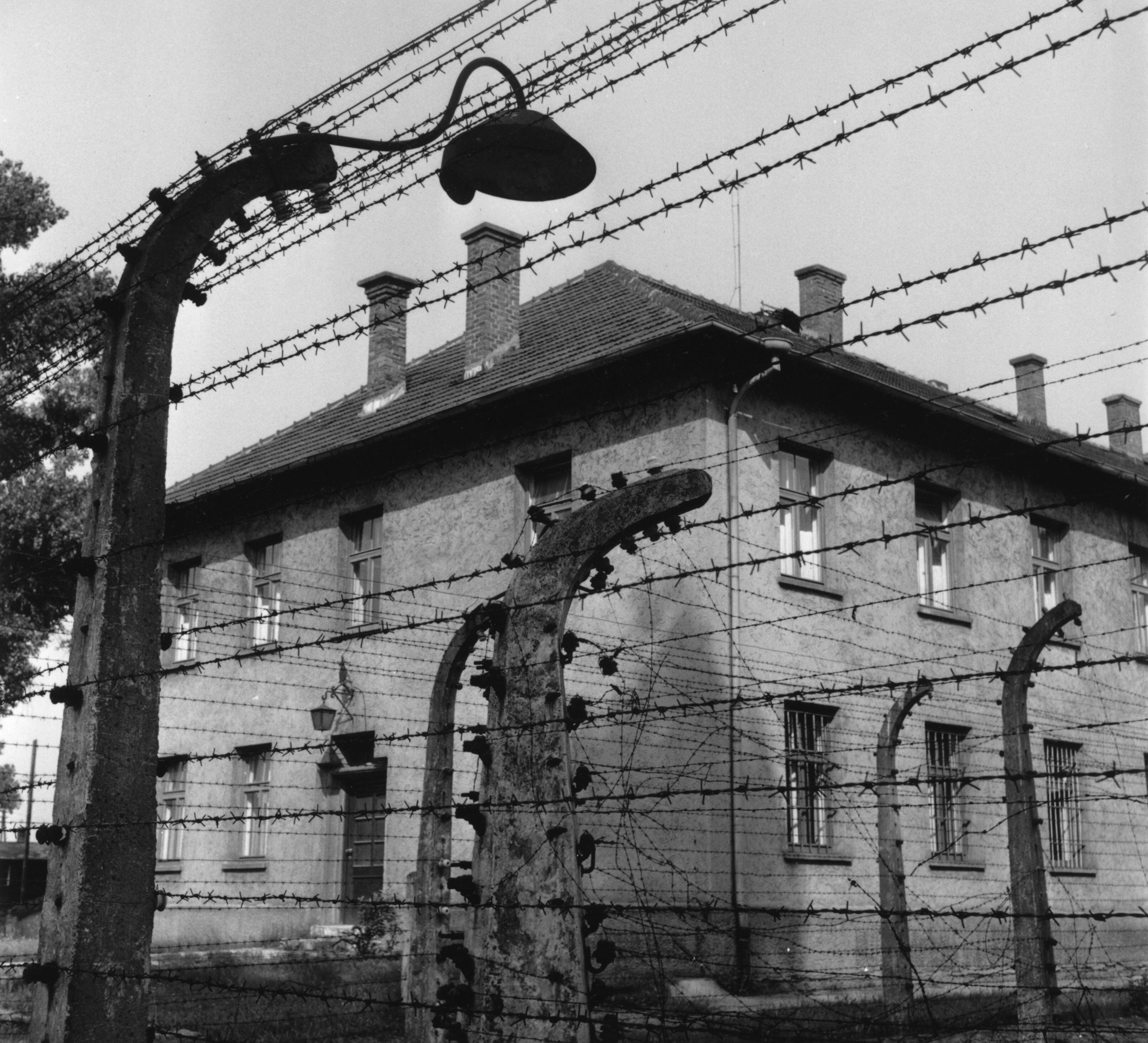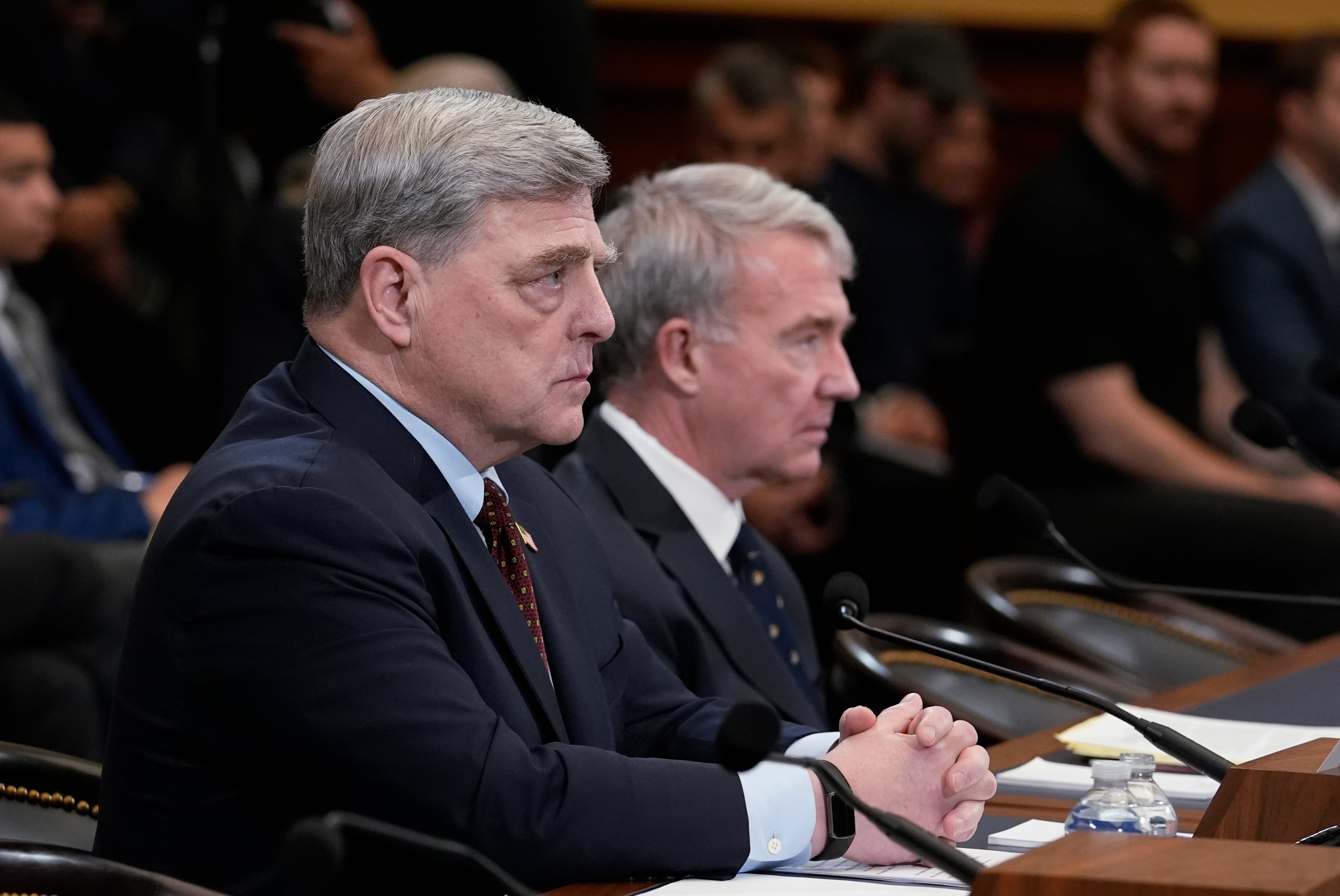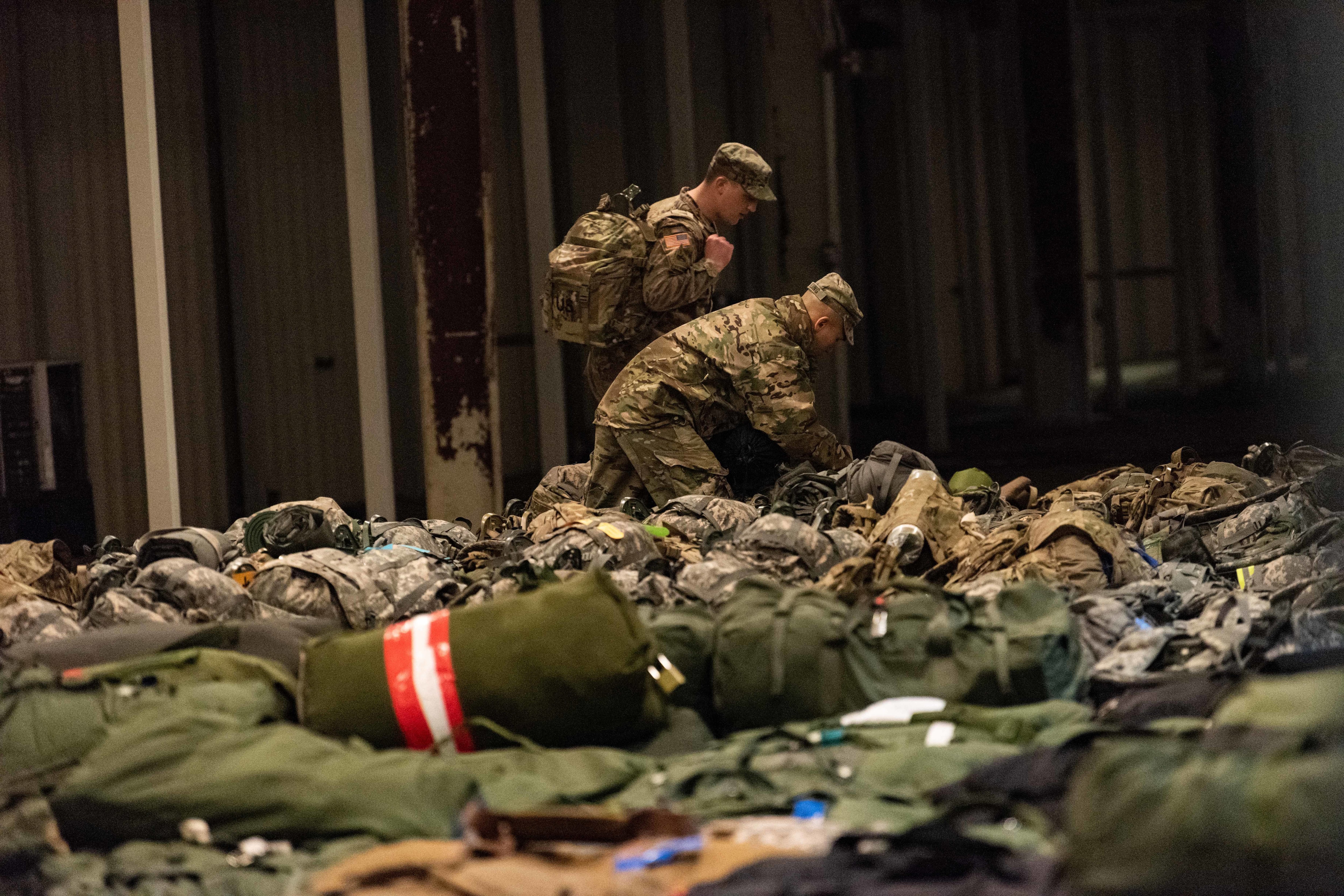Along the Allen family's journey since Army Staff Sgt. Chaz Allen lost his legs in Afghanistan in January 2011, too often their young girls have been "invisible," said their mom, Jessica Allen.
"The VA and DoD don't understand the collateral damage going on with someone who is injured. All they see is a guy with missing body parts," Allen said at a Tuesday symposium on research and issues surrounding children of the wounded. "That's America, too. When we go into a situation ... with a wheelchair ... that's all they see. They don't see me standing behind him, and they sure as heck don't see our kids, even if one of the kids is sitting on his lap."
There has been an increased focus on wounded warriors since the Sept. 11 attacks and, in recent years, on their caregivers. Now, it's time to shine a national light on the needs of their children, said Linda Davidson, executive director of Our Military Kids, which presented the daylong symposium. The nonprofit provides support and recognition for children of deployed National Guard and reserve troops, and children of wounded warriors, paying fees associated with athletic, fine arts and tutoring programs.
Family members who participated in panel discussions included spouses, a daughter, a sister and a wounded warrior. Their circumstances and experiences were different, but they all had one thing in common: with or without the help of the Defense Department or other government agencies, their families found ways to continue their journeys, looking at the life-changing injuries as a detour instead of a derailment. Other panel members included researchers, government officials, nonprofit leaders and advocates.
But there is some trepidation about what lies ahead for them and for other families, including those who could face this situation in the future.
"Hopefully more people are aware of the situation we've been put through," said 14-year-old Deryn Allen.
'THESE ISSUES ARE NOT GOING AWAY'
"We need a voice for these children, to help them connect with the communities where they live and hang out," said Barbara Thompson, who recently retired as DoD's director of the office of family policy.
One potential improvement, Thompson suggested, would be a nonprofit group that focused primarily on the needs of children of wounded warriors and could advocate for them at all stages of their development. As these children move away from the military community, and have less access to resources available, she said, "these issues are not going away."
While some nonprofits focus on some aspects of these needs, there isn't one that specializes in fully caring for children of wounded warriors, she noted.
Needs vary depending on the type and seriousness of injury, the stage of recovery, and the existing family structure. Roles change, injuries can distract parents from parental duties, and in many cases, the child can become a secondary caregiver to the wounded parent.
There is a dearth of research, said Dr. Stephen Cozza, professor of psychiatry at the Uniformed Services University and associate director of the Center for the Study of Traumatic Stress.
"The injured family is probably the least studied of our military population," he said. "This is a diverse and wonderful group of committed people who put their lives on the line for us. Combat injuries and associated illnesses can have a profound effect on families and kids."
The goal, he said, is to keep the children strong and capable, and to help them become important and active members of society.
FIRST IMPRESSIONS
In the immediate aftermath of a war wound, families face critical decisions about what to tell their children and when to let them see the service member, Cozza said. Jessica Allen said she and her husband chose to reunite him with their children in the living room of the Fisher House, so the first time they saw their dad's injuries was away from the hospital room.
There are considerations about what children should see in the hospital, panelists said.
Deryn also said it helped her to be able to talk it out with her mother, and pepper her with questions. "She said it's going to be OK," Deryn said.
That's important for physicians and those who work with kids to realize, Cozza said, adding that children should be allowed to have "their own authentic, real experience," not be seen as an attachment to their parent.
Children of the wounded and injured want to be able to talk about and understand what's going on "and be reassured that everything's going to be OK, even though this thing has happened," he said.
A LIFELONG PROCESS
Medical treatment is just the beginning of the journey, Cozza said.
"Injury is not an event; it's a process," he said. "We need to think about the fact that when an injury occurs, and the medical treatment is over, that process doesn't end."
Whether it's help in adapting parenting skills as parents move into different relationships with their children, assistance in finding support for a particular need, or helping at-risk families dealing with post-traumatic stress, traumatic brain injury or other serious injury, some families may need short-term support, but others may need help for years, Cozza said.
That might mean help with basic needs such as housing, education, health care, child care and employment; support for the family's communication, coping and resilience; and outreach for families to encourage them to seek assistance when needed.
There should be an ongoing commitment to these families, he said, especially as issues are not always resolved while the service member is in the hospital.
Families often have to find new ways to relate to one another. For the Allen family, that meant having their young girls, ages 6 and 9, participate in Chaz's Allen's physical and occupational therapy.
When Chaz Allen was at the former Walter Reed Army Medical Center in Washington, D.C., in 2011, his two girls were the only school-aged children on their hospital floor.
"They didn't know what to do with us," Jessica Allen said. "Then the occupational therapists and physical therapists addressed it appropriately, and figured out how to include the girls" in their father's therapy.
The family quickly realized it was making a difference not only to the girls, but to Chaz, she said.
"My husband said he enjoyed having the girls there. When he would achieve a new level, he felt better having the girls there" to celebrate with him, she said.
But when they were moved to the new Walter Reed facility in Bethesda, Maryland, she said, things were different. There were signs that prohibited children from the occupational therapy and physical therapy areas.
Deryn, then 9 years old, started crying, her mother said, asking, "Why don't they want me to help my dad?"
"As a mom," Jessica Allen said, "that was a very hard day."
So she asked the physical therapists and occupational therapists to help, and they worked out an arrangement to bring the girls in on certain days so they could feel good about helping their dad, she said.
Allen said once she found the right people to talk to, she started seeing some good advancements. And while things have changed, with more opportunities and attention to children with injured parents at Walter Reed, it was a valuable experience for her family.
"I've shown our children that sometimes it's worth the fight. You have to pick your battles, but you have to stand up," Allen said.
She's thankful for the experience, she said. "It's been hell, but I have this amazing family and amazing friends.
"But I don't want another child to think they can't be part of their dad's healing or their mom's healing. DoD and VA have to understand that it's not just about that guy that was injured."
BEYOND MEDICAL HELP
The needs of these children require national attention, Cozza said, not just that of the medical or military community.
Jessica Allen praised nonprofit organizations such as Our Military Kids, which provided funds for Deryn to take gymnastics lessons. Deryn still loves gymnastics, and is a cheerleader at her school.
Deryn said participating in gymnastics helped relieve the stress because she focused her mind on gymnastics moves, "rather than worrying about what was happening in the hospital," she said.
The ability to participate in sports or similar events is an important example, Cozza said.
"The main job of kids in these situations is to be growing and to be growing up," he said.
Each day the children find ways to deal with questions and issues, large and small. When now 14-year-old Deryn prepares her friends to see her dad for the first time, she said she tells them, "He doesn't have legs. ... He's in a wheelchair. ...
.
"Just watch your toes, you'll be fine."
Senior reporter Karen Jowers covers military families, quality of life and consumer issues for Military Times. She can be reached at kjowers@militarytimes.com.
Karen has covered military families, quality of life and consumer issues for Military Times for more than 30 years, and is co-author of a chapter on media coverage of military families in the book "A Battle Plan for Supporting Military Families." She previously worked for newspapers in Guam, Norfolk, Jacksonville, Fla., and Athens, Ga.










